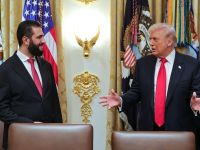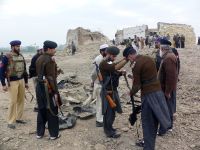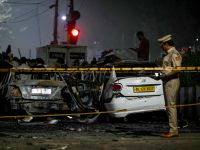By Munir K. Nasser
Chief Correspondent, Washington, DC
Albawaba.com
After a failed attempt by the United States, the UN General Assembly resumed its emergency special session Wednesday on illegal Israeli actions in the West Bank and Gaza.
The session, which was requested by the Palestine Observer Mission to the UN with the support of the 114-nation Non-Aligned Movement, was scheduled despite calls by the United States and Israel to refrain from holding “a potentially inflammatory session so soon after the difficult summit at Sharm el-Sheikh produced an understanding by Israeli and Palestinian leaders to halt the bloodshed.”
US Ambassador to the UN Richard Holbrooke told reporters before the session: "This General Assembly session today may make some countries feel good. It's a chance for some ambassadors to stand and to make a speech into the emptiness of the General Assembly hall about how they feel, but it is not conducive to the peace process."
A draft resolution before the assembly condemns "acts of violence and the excessive use of force by the Israeli occupying forces against Palestinian civilians;" supports the need for full respect of the holy places in Jerusalem; and says that "Israeli settlements in occupied Palestinian territory, including Jerusalem, are illegal and are an obstacle to peace."
The Permanent Observer of Palestine, Nasser Al-Kidwa, said that the sponsors of the resolution will review the draft in light of the Sharm Al-Sheikh summit and "what will happen in the coming hours" and may make revisions.
Holbrooke said, "A resolution in the General Assembly is incompatible with the role of either the United Nations or the United States functioning as an honest broker."
In his address to the assembly, al-Kidwa blamed Israel for using "its huge war machine to launch a bloody campaign of repression against our people, imposing severe restrictions on the movements of persons and goods, and using tanks and other heavy weapons to impose a siege on Palestinian cities and villages.”
The occupying forces have used heavy weaponry, helicopter gun ships and, in many cases they have caused a large number of casualties and losses among our people," al-Kidwa said. "In addition to all of this ugliness, Israel, the occupying power, attempts to lay the blame on the Palestinian side, to point the finger of blame to those who have been killed and injured."
The Observer for Palestine said the recent summit at Sharm El-Sheikh in Egypt represented a serious attempt to rescue the situation, which deserved support. "Nevertheless, we must note that there was no signed communiqué issued by the summit and at the same time there were certain ambiguities with regard to the understandings reached," he said. "There is also the constant concern stemming from our previous experiences of Israel's non-compliance with anything agreed upon," he added.
Israel's Ambassador Yehuda Lancry cited a number of Palestinian actions, including the freeing of prisoners who have been convicted of committing violent acts against Israelis, as "an alarming pattern of behavior by the Palestinian leadership" that sent "a clear signal to their people, to Israel, and by now to the world, that they are choosing the path of violence."
The Assembly also heard from the representatives of Senegal and South Africa before the close of Wednesday’s meeting. The resumed session is set to continue on Friday, with 41 additional speakers planning to participate in the debate.
© 2000 Al Bawaba (www.albawaba.com)







